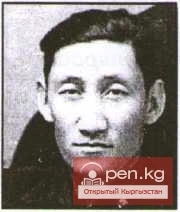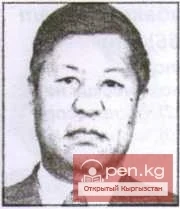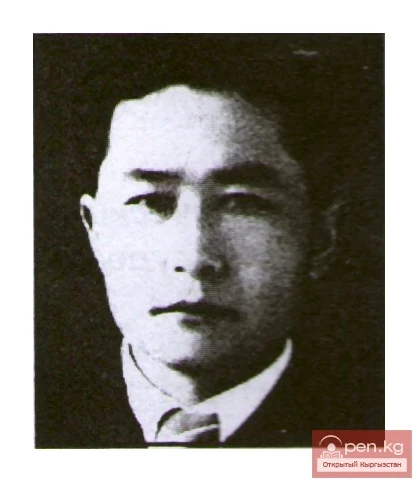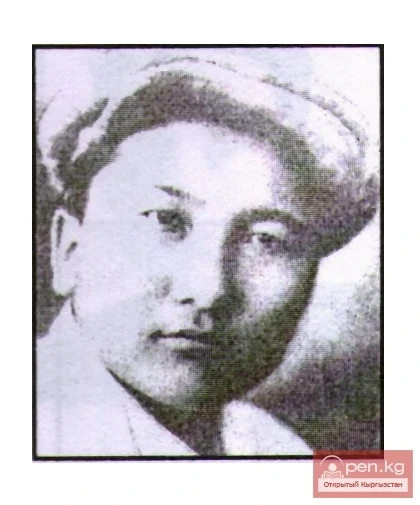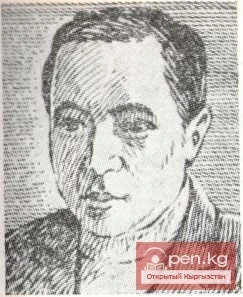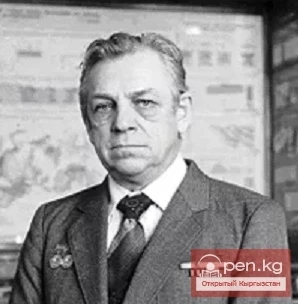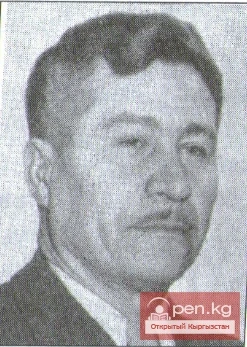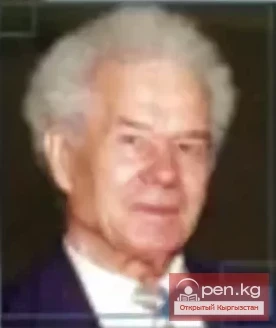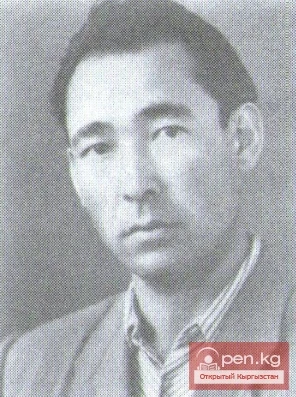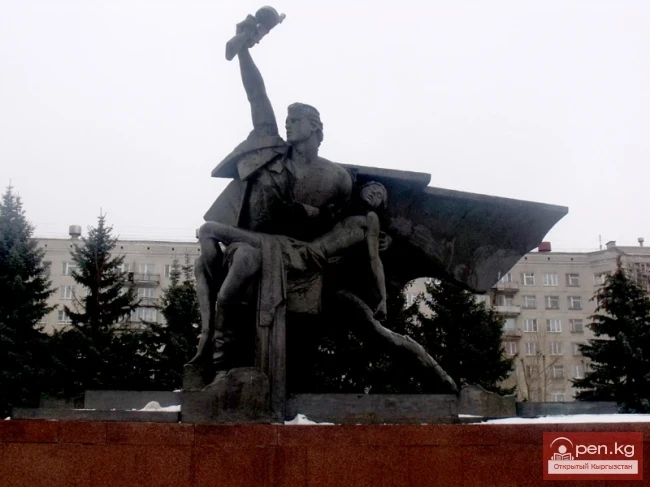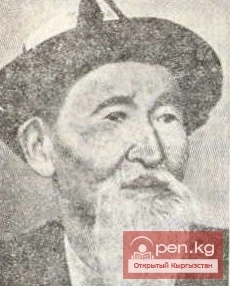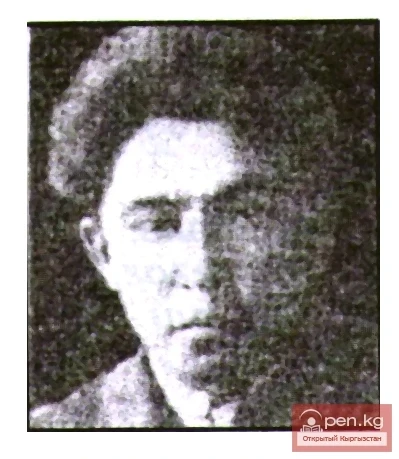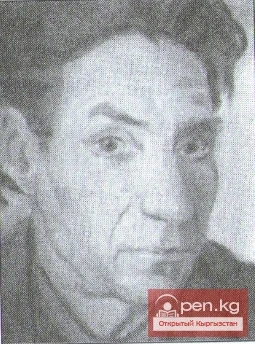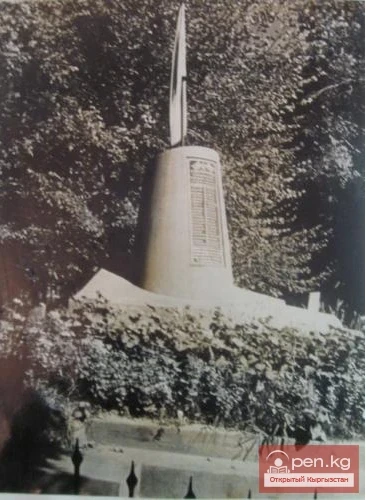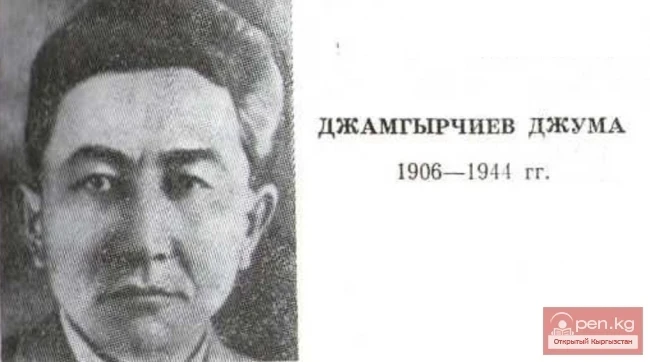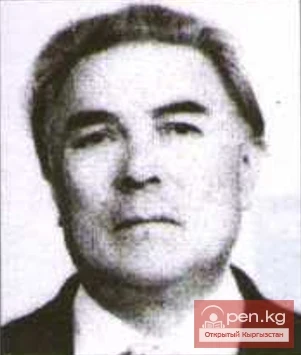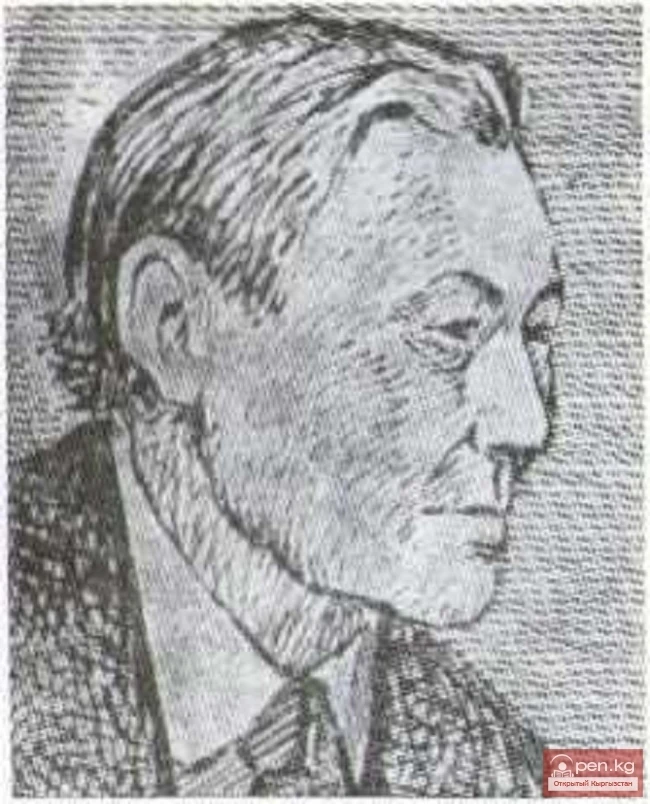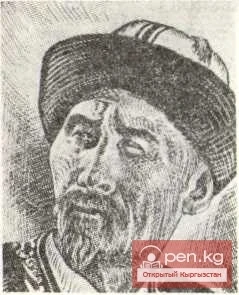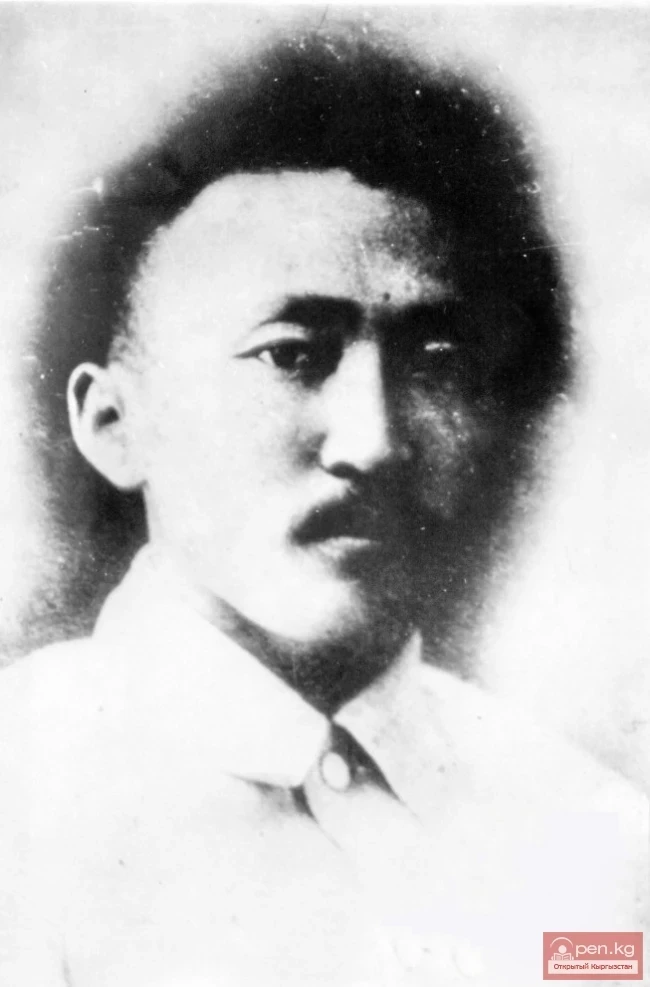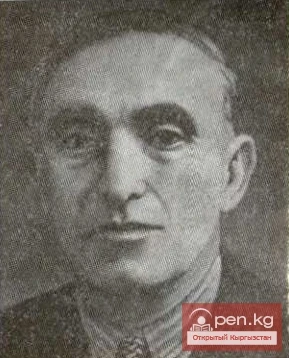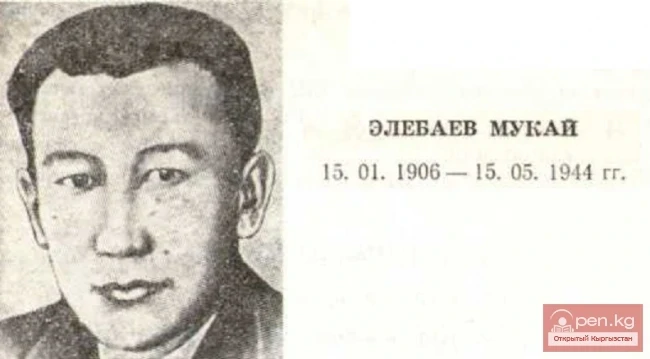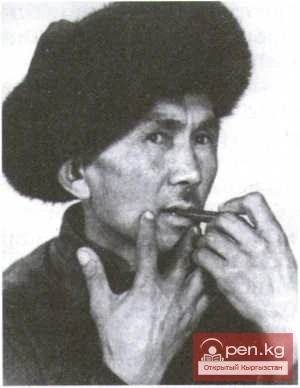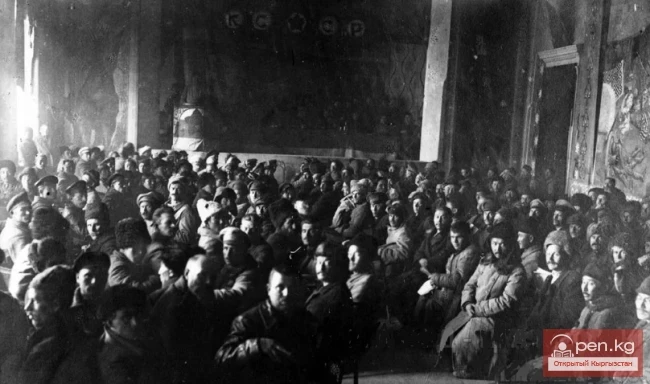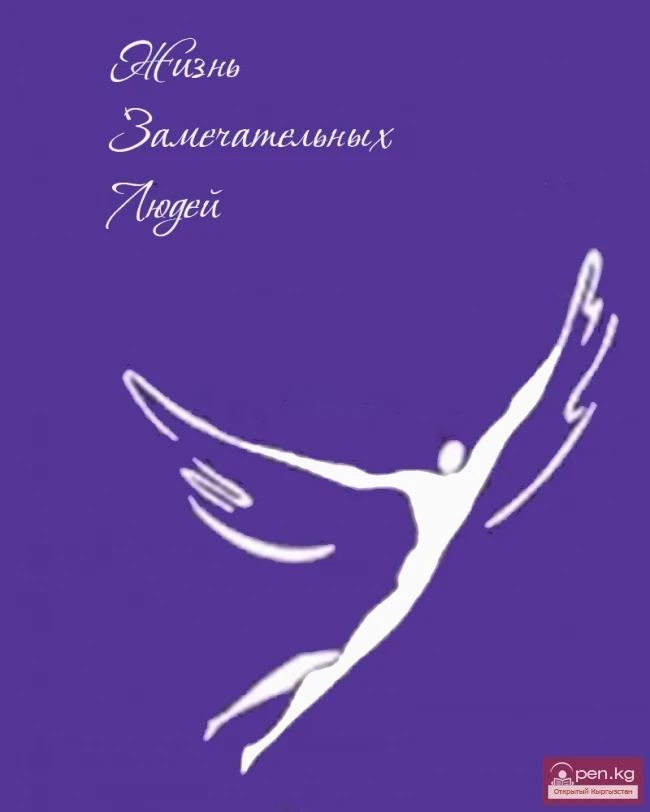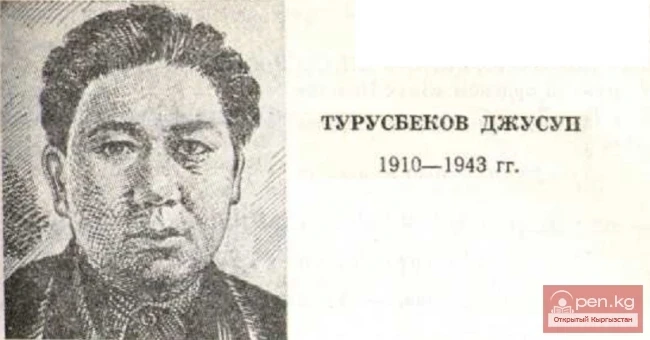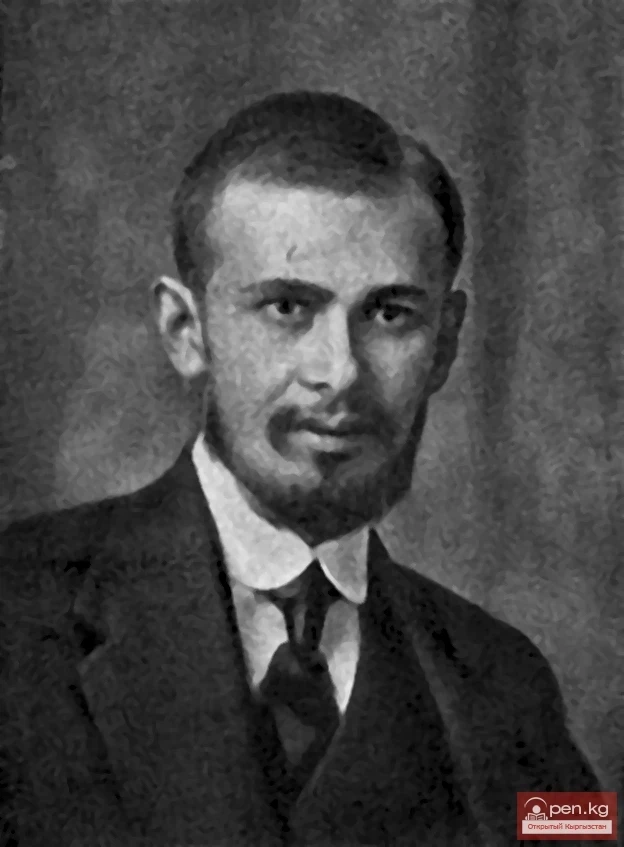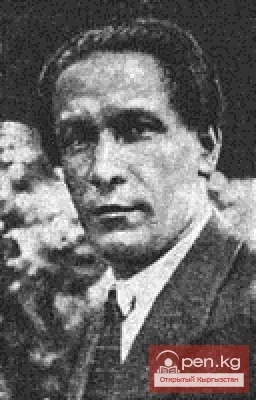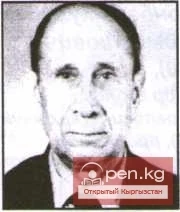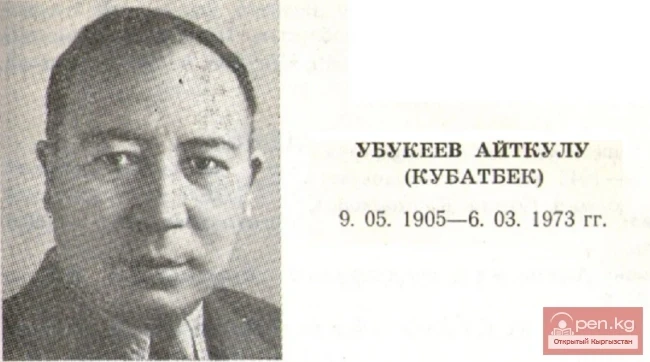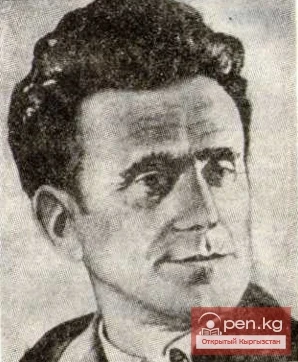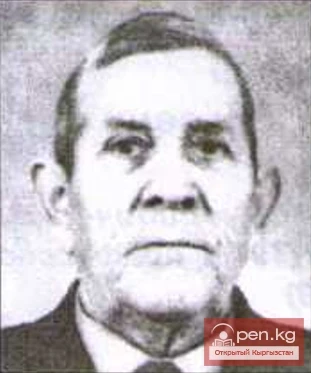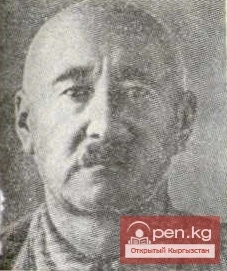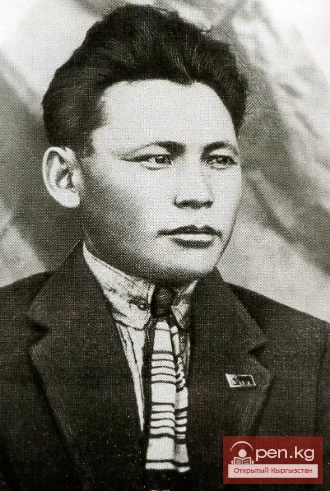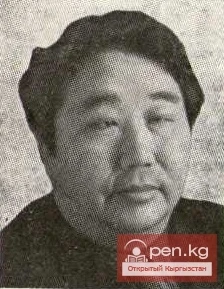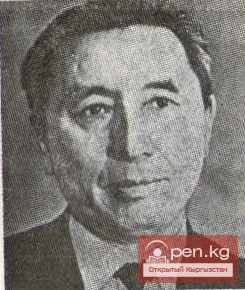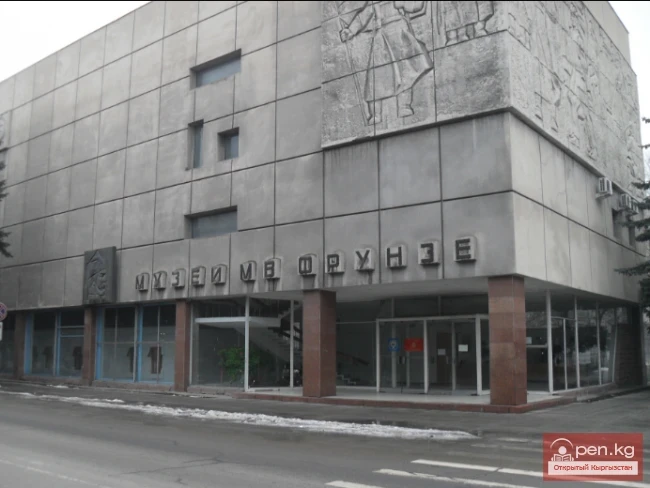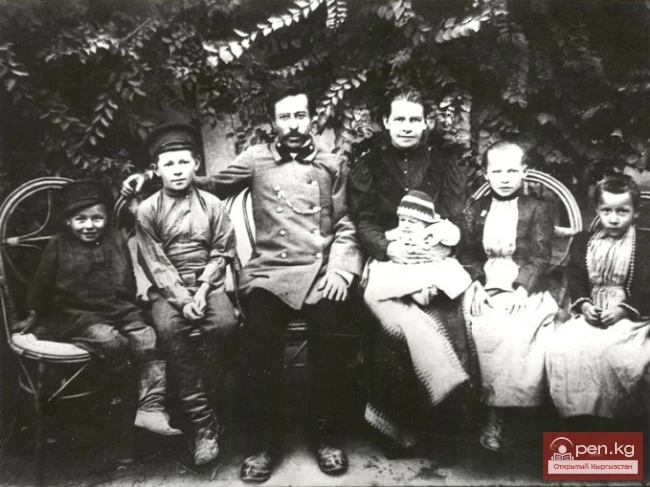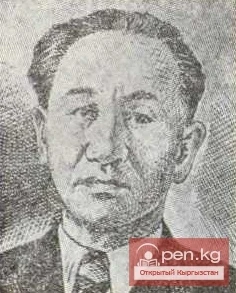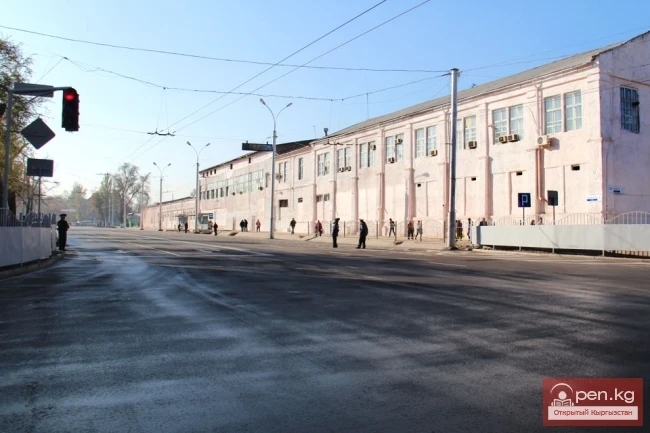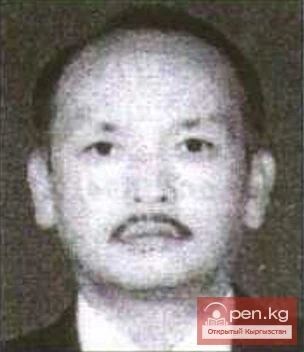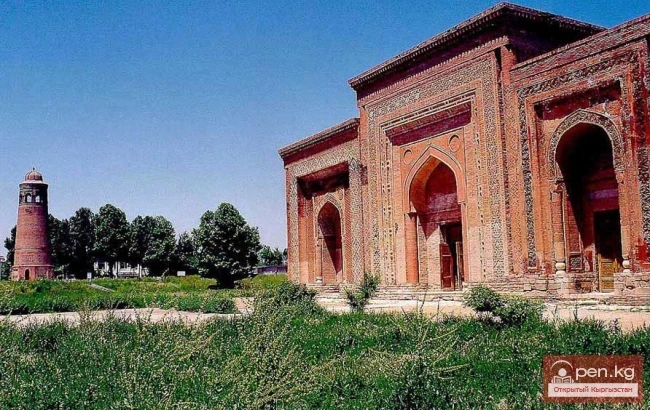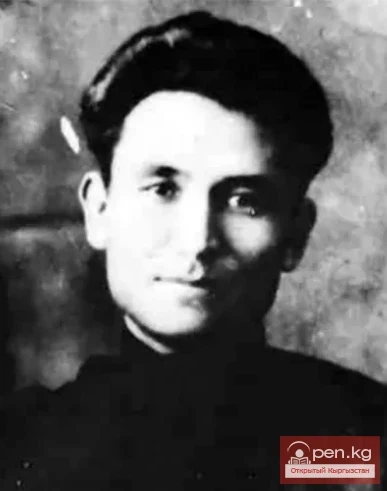
Torokul Aitmatov (1903 - 1938)
Born in aul No. 5 (Sheker) of the Kukuryevskaya volost of the Auliye-Ata district in the Semirechye region. Kyrgyz. According to his autobiography, he was born into a "peasant-poor" family; his father died in 1919. His grandfather, Kimbildi, "was a wealthy man." A member of the Communist Party since March 1925. A member of the Komsomol since 1921.
He studied at the Russian-native mining school (1916-18) until its disbandment; studied for 8 months at the so-called "Unified Labor School" (1918-19) in Auliye-Ata, at the Auliye-Ata real school (1919). Graduated from a 3-month party school (1921) in Tashkent. Graduated from the Communist University of the Toiling East named after I. Stalin (1921-25).
In his youth, he worked on his father's farm.
From 1913 to 1916, he studied at a Muslim primary school (mekteb).
In 1920, he was the secretary of the laborers' organization and the secretary of the village council in the village of Groznoye.
In early 1920-1921, he was the secretary of the Kukuryevsk volost executive committee.
In 1921, he was elected as a delegate to the Syr-Darya regional congress of the Communist Youth Union of Turkestan, which was supposed to take place in Tashkent but did not occur due to the difficult situation on the fronts and the small number of delegates. He remained in Tashkent.
From 1921 to 1925, he studied at the KUTV in Moscow. In 1924-25, he was a member of the bureau of the Komsomol cell at KUTV.
From May to July 1923 (sent on summer vacation) - a political worker of the political secretariat of the Turkestan Front in Andijan. From July to August 1923 - a political worker-commissioner for work among the local population in the Fergana region.
From December 1924 to 1925 - an instructor in the Agitation and Propaganda Department of the Organizational Bureau of the Kyrgyz Regional Committee of the VKP(b).
+ From June to August 1924 - a lecturer-teacher of social sciences at the National Communist School.
From March to November 1925 - deputy head of the Agitation and Propaganda Department of the Kyrgyz Regional Committee of the VKP(b).
+ On March 5, 1925, the Bureau of the Kirghiz Regional Committee appointed him "temporarily" as a lecturer of the Agitation and Propaganda Department of the Kirghiz Regional Committee.
From November 1925 to May 8, 1926 - head of the Agitation and Propaganda Department of the Kirghiz Regional Committee of the VKP(b).
From May 8, 1926, to March 13, 1927 - responsible secretary of the Karakol District Committee of the VKP(b).
From March 13, 1927, to 1929 - responsible secretary of the Jalal-Abad Canton Committee of the VKP(b).
From January to November 1929 - People's Commissar of Industry and Trade of the Kyrgyz ASSR.
From November 1929 to April 1931 - chairman of the Central Council of National Economy (TsSNE) of Kyrgyzstan.
From April 1931 to 1933 - 1st secretary of the Aravan-Burinsk District Committee of the VKP(b).
2nd secretary of the Central Committee of the Communist Party of Kyrgyzstan.
From 1935 to 1937, he studied at the Institute of the Red Professorship in Moscow.
A member of the Bureau of the Kyrgyz Regional Committee of the VKP(b) (from the 2nd to the 3rd regional party conference and again from the 6th regional conference), a candidate member of the bureau (from the 5th to the 6th regional conference).
Married. Wife (since September 1925) - Nagima Hamzeevna Abdulvalieva/Abdulvalieva (born December 7, 1904, Karakol) - daughter of a Kazan merchant of the 1st guild, graduated from a school-gymnasium in Karakol (1925), in her youth - an actress of the Karakol City Theater, graduated from shorthand courses, head of the department of the Karakol District Committee of the Komsomol, from 1927 - secretary of the Jalal-Abad City Committee of the Komsomol, secretary of the Jalal-Abad Canton Executive Committee, from 1931 to 1933 - head of the women's department of the Aravan-Burinsk District Committee of the party, from 1935 to 1937 - a kindergarten teacher in Moscow, from 1937 - lived with her husband's relatives, his sister Karakoz, an accountant in the Kirov District Executive Committee, a bookkeeper in the collective farm of the village of Zhiyde, now in the Manas district, chief accountant of the Kirov District Agricultural Management, retired since 1954.
Children. On December 12, 1928, a son was born - Chingiz, on February 8, 1931 - Ilgiz, on December 15, 1934, twins were born - a strong, healthy boy and a weak girl. In honor of the 1917 revolution, they were given the names: the boy - Revo, the girl - Lutsia. According to Kyrgyz customs, grandmother Aymankan, Torokul's mother, took the grandson to the aul of Sheker. Unfortunately, the baby caught a cold at six months and died.
From 1935 to 1937, Torokul Aitmatov studied in Moscow at the Institute of the Red Professorship, where cadres of party and Soviet workers were trained. The students of the institute lived with their families in the center of Moscow, on Vorovsky Street, 25. Great attention was paid to the upbringing of family members, especially children. Literacy courses were organized for illiterate workers serving the dormitory, which preschool children also attended. During the summer holidays, families with children went to suburban villages, where life was like that of all ordinary people. They ate rye bread, porridge, worked in the garden, read, and watched films of those years: "We Are from Kronstadt," "Chapaev," "The Children of Captain Grant," and were raised in the spirit of internationalism.
Ilgiz was already able to read at the age of 6. Thanks to newspapers and radio, children knew what was happening in the country and the world. At that time, there was a civil war in Spain between the republicans and the fascist regime, and there was also a civil war in China and a war against Japanese occupiers. Even then, the names Chiang Kai-shek, Mussolini, Franco were familiar to children.
On March 8, 1937, the Aitmatovs had a daughter, whom they named Rozetta in honor of a famous partisan heroine of the Spanish republicans. The names Lutsia and Rozetta were not a tribute to fashion. It was a deep faith of the parents in the ideals of the revolution and internationalism.
On November 10, 1937, T. Aitmatov was expelled from the party by the decision of the bureau of the Dzerzhinsky District Committee of the party. On that day, Torokul Aitmatov's political career and labor activity came to an end.
On September 15, 1937, the Bureau of the Central Committee of the Communist Party of Kyrgyzstan decided to "ask the Central Committee of the VKP(b) to transfer the nationalist A. from studies at the Institute of the Red Professorship to the disposal of the Central Committee of the Communist Party of Kyrgyzstan to resolve the issue of his party membership." He was arrested in Moscow.
T. Aitmatov was transported from Moscow to Frunze in a prisoner car of a train heading to Kyrgyzstan. On January 14, 1938, he was delivered to the Frunze prison. The next day, he was officially charged under Article 58, paragraphs: 1, 4, 7, 10, 11 of the Criminal Code: "He is an active participant in the counter-revolutionary nationalist organization 'STP,' which aimed at the armed overthrow of Soviet power, the violent detachment of the Kyrgyz SSR from the USSR, and the establishment of a bourgeois-nationalist state under the protectorate of one of the foreign bourgeois states. In his practical work, he conducted organizational subversive and destructive activities in Kyrgyzstan. He recruited a number of individuals into the counter-revolutionary organization."
A year later, he would be executed and buried in a mass grave at Chon-Tash.

